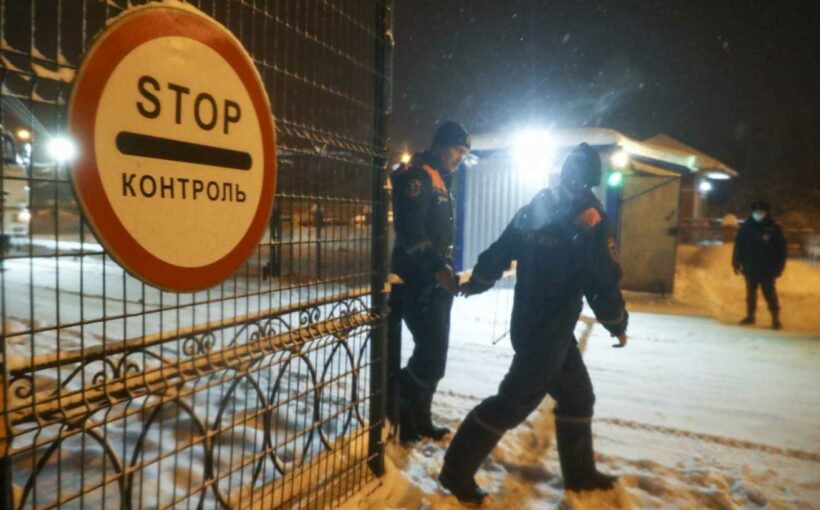- A devastating explosion in a Siberian coal mine Thursday left 52 miners and rescuers dead about 250 meters (820 feet) underground, Russian officials said.
- The state Tass and RIA-Novosti news agencies cited emergency officials as saying that there was no chance of finding any more survivors in the Listvyazhnaya mine, in the Kemerovo region of southwestern Siberia.
- Explosions of methane released from coal beds during mining are rare but they cause the most fatalities in the coal mining industry.
A devastating explosion in a Siberian coal mine Thursday left 52 miners and rescuers dead about 250 meters (820 feet) underground, Russian officials said.
Hours after a methane gas explosion and fire filled the mine with toxic fumes, rescuers found 14 bodies but then were forced to halt the search for 38 others because of a buildup of methane and carbon monoxide gas from the fire. Another 239 people were rescued.
The state Tass and RIA-Novosti news agencies cited emergency officials as saying that there was no chance of finding any more survivors in the Listvyazhnaya mine, in the Kemerovo region of southwestern Siberia.
The Interfax news agency cited a representative of the regional administration who also put the death toll from Thursday's accident at 52, saying they died of carbon monoxide poisoning.
It was the deadliest mine accident in Russia since 2010, when two methane explosions and a fire killed 91 people at the Raspadskaya mine in the same Kemerovo region.
A total of 285 people were in the Listvyazhnaya mine early Thursday when the blast sent smoke that quickly filled the mine through the ventilation system. Rescuers led to the surface 239 miners, 49 of whom were injured, and found 11 bodies.
Later in the day, six rescuers also died while searching for others trapped in a remote section of the mine, the news reports said.
Regional officials declared three days of mourning.
Russia's Deputy Prosecutor General Dmitry Demeshin told reporters that the fire most likely resulted from a methane explosion caused by a spark.
The miners who survived described their shock after reaching the surface.
"Impact. Air. Dust. And then, we smelled gas and just started walking out, as many as we could," one of the rescued miners, Sergey Golubin, said in televised remarks. "We didn't even realize what happened at first and took some gas in."
Another miner, Rustam Chebelkov, recalled the dramatic moment when he was rescued along with his comrades as chaos engulfed the mine.
"I was crawling and then I felt them grabbing me," he said. "I reached my arms out to them, they couldn't see me, the visibility was bad. They grabbed me and pulled me out, if not for them, we'd be dead."
Explosions of methane released from coal beds during mining are rare but they cause the most fatalities in the coal mining industry.
The Interfax news agency reported that miners have oxygen supplies normally lasting for six hours that could only be stretched for a few more hours.
Russia's Investigative Committee has launched a criminal probe into the fire over violations of safety regulations that led to deaths. It said the mine director and two senior managers were detained.
President Vladimir Putin extended his condolences to the families of the dead and ordered the government to offer all necessary assistance to those injured.
Thursday's fire wasn't the first deadly accident at the Listvyazhnaya mine. In 2004, a methane explosion left 13 miners dead.
In 2007, a methane explosion at the Ulyanovskaya mine in the Kemerovo region killed 110 miners in the deadliest mine accident since Soviet times.
In 2016, 36 miners were killed in a series of methane explosions in a coal mine in Russia's far north. In the wake of the incident, authorities analyzed the safety of the country's 58 coal mines and declared 20 of them, or 34%, potentially unsafe.
The Listvyazhnaya mine wasn't among them at the time, according to media reports.
Russia's state technology and ecology watchdog, Rostekhnadzor, inspected the mine in April and registered 139 violations, including breaching fire safety regulations.
Source: Read Full Article
